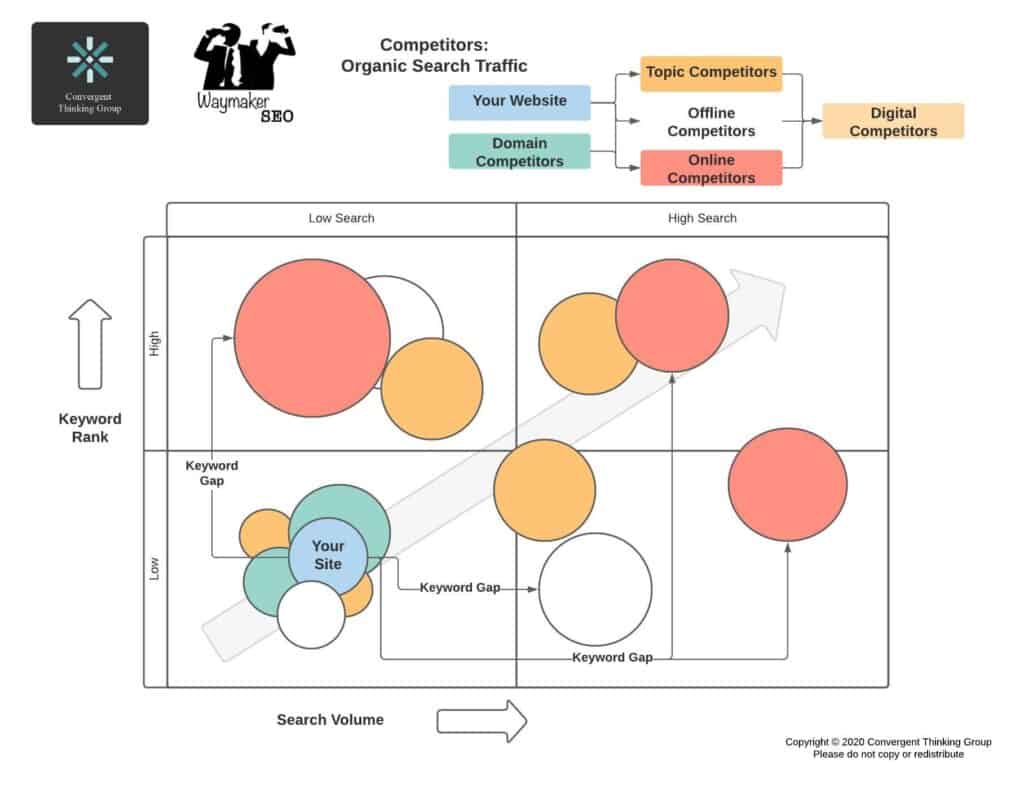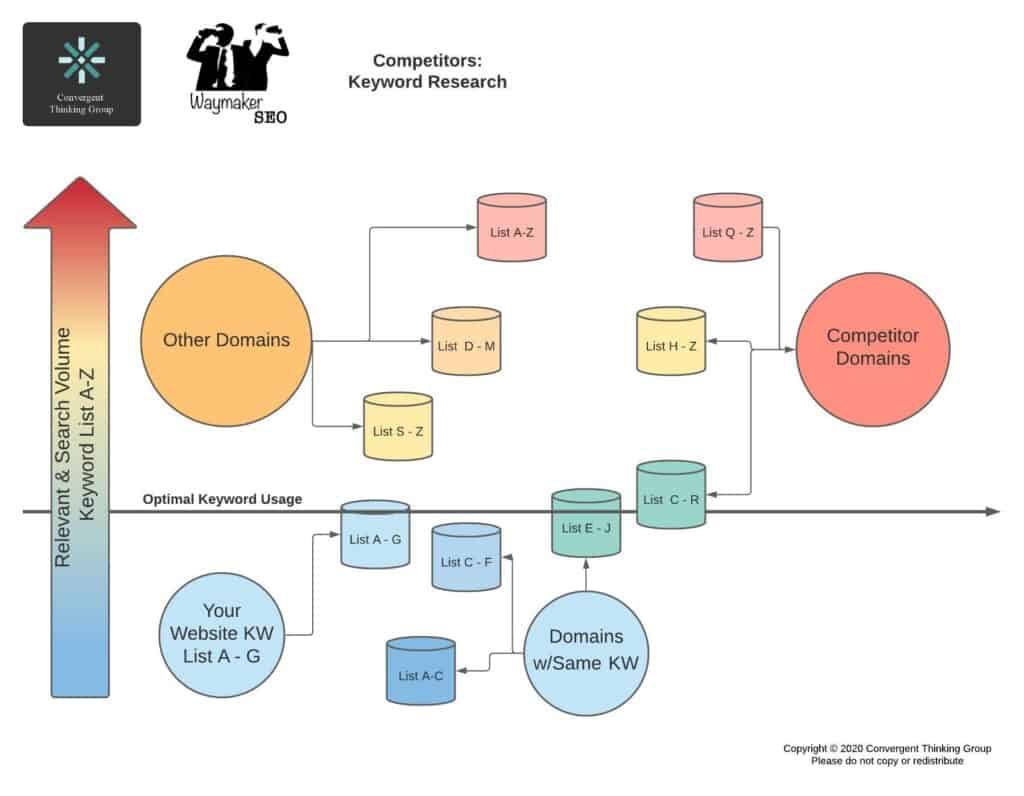SEO Competitor Analysis: Insights
Comeptitor Insight
I thought I would share a few thoughts on competitors for Search Engine Optimization (SEO) efforts. That's what I call SEO Competitor Analysis. I'll frame this into a simile.
Search Engine Optimization is like a marathon. In a marathon, the goal is to get to the end. The runner balances their pace, water, and food intake, and adjusts as they come to hills and declines. The process of a marathon is as important as the end goal. How and when you get to the finish line depends on other goals that you have and the number of resources you want to commit. In running a marathon, you succeed by getting to the finish line.
The same is similar to SEO efforts. A common goal is to get the organic research results you need to have a healthy pipeline of clients and run a successful business. This goal is what I would call the SEO finish line. This can happen over a longer time with small regular efforts, quickly with tremendous efforts, or something in between.
The problem and the difference between a marathon goal and an SEO Goal is the "finish line" is moving in SEO.
This line moves as more people enter into the competition. New websites, or current sites engaging in SEO efforts, start ranking for keywords you are using or want to use. They are creating new content or other conditions on the web take effect, improving their website ranks over your website. All of these sites, using keywords, we umbrella under "competitors".
In SEO, more competitors mean the goal line is moving.
We want to unpack who these competitors are.
The Competitor Problem in SEO
So you're up for SEO work and you have a solid idea of where you want to go, now you need to identify your competition. You do a few checks and you see a few websites that have no direct competition, but they are using the words you want!
This is a problem!
So let's break this problem down and define a few elements.
The SEO Goal
Your site is going after keywords/phrases that are high conversion and/or high traffic, and some that are ideally both. All three of these goals are long-term goals. The idea is to get your site to a place where you are generating enough clients to keep your business running.
Define In-Market Competitors
These are the folks that you win/lose bids against that have a location/office that you can see and know exists. They may or may not have an online presence.
Domain Competitors
Other websites are using the same or very similar keywords/phrases list as your website. If your website is not delivering leads or clients, then you're competing against other people that are also having issues.
If your site is achieving its goal, then these are the websites that can move ahead or push your website back (down in ranks) as they improve their SEO efforts.
Topic Competitors
These are people that are using keywords and phrases, that you want to use, that brings conversion and traffic to the site. They may not be selling a product/service but they have a Keyword list that you would want to use.
Online Competitors
These are the competitors you are looking for! They sell a product or service and are using keywords with high traffic and high conversion and directly compete with you for clients online.
Digital Competitors
Add up the last few groups of folks, and now you have a broader view of what your online competition is really like.
How to Overcome the SEO Competitor Problem: SEO Competitor Analysis
Here are some tips to overcome the problem:
- Prioritize your competitors based on what they are actually offering on their website, the strength of their domain, and keyword ranks. Work up a list of websites you want to compete against and rank them. Tier them out and work a strategy that moves you up the tiers.
- Identifying Competitors Strategies, more so for websites that are "ahead" of your website. Keywords data and backlinks are the low-hanging fruit here. An SEO Competitor Analysis or Audit should give you this data.
- Watch your rear, i.e. those websites that are "behind" your site, in rank, for any sudden movement in rank and position changes.
- Research, research, research. Your SEO strategy should not be just what you are doing but analyze what others are doing and adopt their best practices.
- Expand your Competitor List and include websites that might be taking up ranks for words that you want to rank higher. Understand that at each tier, there may be different competitors with their own unique keyword list. Use continuous feedback to identify any new competitors.
Some key tips
The wonderful thing about websites is the amount of data and information that is ready to be found and can be collected with the right tools.
- Keyword Gap - Run an analysis of your website and gather a keyword list. Run the same reports on your competitor's website. Look for words they are using; research the ranks, search volume, competitiveness, etc. . Incorporate words that align with your overarching marketing goals.
- Backlinks - Run a backlink analysis on your website. Run the same report on your competitors. Look for domains with high rank and authority. Also look for common threads (Industry Sites, Publications, Certifications, etc.)
- Domain Competitors - Check your keyword list and see who is ranked for similar words. These are the folks your website is currently competing against online.
- Adopt a two-tier strategy.
- Work with the information you have now and create a plan based on what you see now.
- Keep a strategy in place that allows for new information and can be adopted ad-hoc till your main strategy needs to be updated.
I can help you identify your online competitors at each level of your SEO efforts. SEO Competitor Analysis scaled to the level you want to compete.
If you want to ask some questions or need additional information, please contact us for a free 15-minute consultation.

Senior-level SEO consultant that enjoys helping businesses learn how to SEO their website since 2007. I have over 20 years of experience helping business owners realize their goals through process development, data-driven decision-making, and simplifying complex processes.


